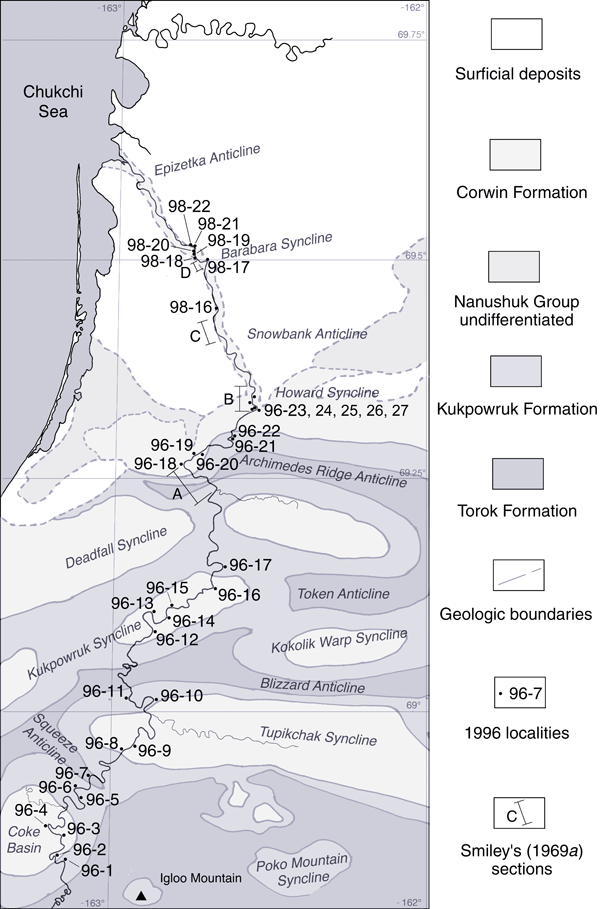Kukpowruk River
| Introduction | Geology | Northern Alaska Map | Kokolik River |
|---|
The map on the right shows the localities along the Kukpowruk River sampled both by Smiley (reported in Smiley 1969a), Spicer and Herman (1996) and by Bob and Andrew Spicer in 1998. Click on the locality numbers to see further details of the sites and the fossil floras. |
|
|
The localities along the Kukpowruk River represent exposures of deposits ascribed to the Torok, Kukpowruk and Corwin Formations of Chapman et al. (1964). The Kukpowruk and Corwin formations are equivalent to the lower and upper Nanushuk Formation of Mull et al. (2003). These units include shallow marine, marginal marine, lower delta plain and upper delta plain environments. Marine or marginal marine environments are interpreted for parts of not only the Torok and Kukpowruk but also the Corwin Formation, which traditionally has been regarded as non-marine. Differentiating between the different formations in the field is extremely difficult to impossible on purely sedimentological or palaeontological grounds. In general, however, there is a gradual, but oscillatory, transition from predominantly marine environments represented by sediments mapped as the Torok Formation, to predominantly non-marine environments reflected in those rocks mapped as the Corwin Formation. The Kukpowruk Formation mostly represents shallow to marginal marine, to lower delta plain environments. The Corwin Formation contains abundant, thick, cross-bedded, yellow-weathering, channel sandstones (particularly between localities 96-23 to 96-26), commonly with pebble conglomerate stringers and transported logs. The sedimentary packages that include the thick channel sandstones are interpreted as mostly representing upper delta plain situations. Coals occur throughout the non-marine units but those in the Corwin tend to be cleaner (i.e., with less inorganic sediment components) than those of the Kukpowruk. This probably indicates deposition further from the shoreline in more stable interfluves. |

